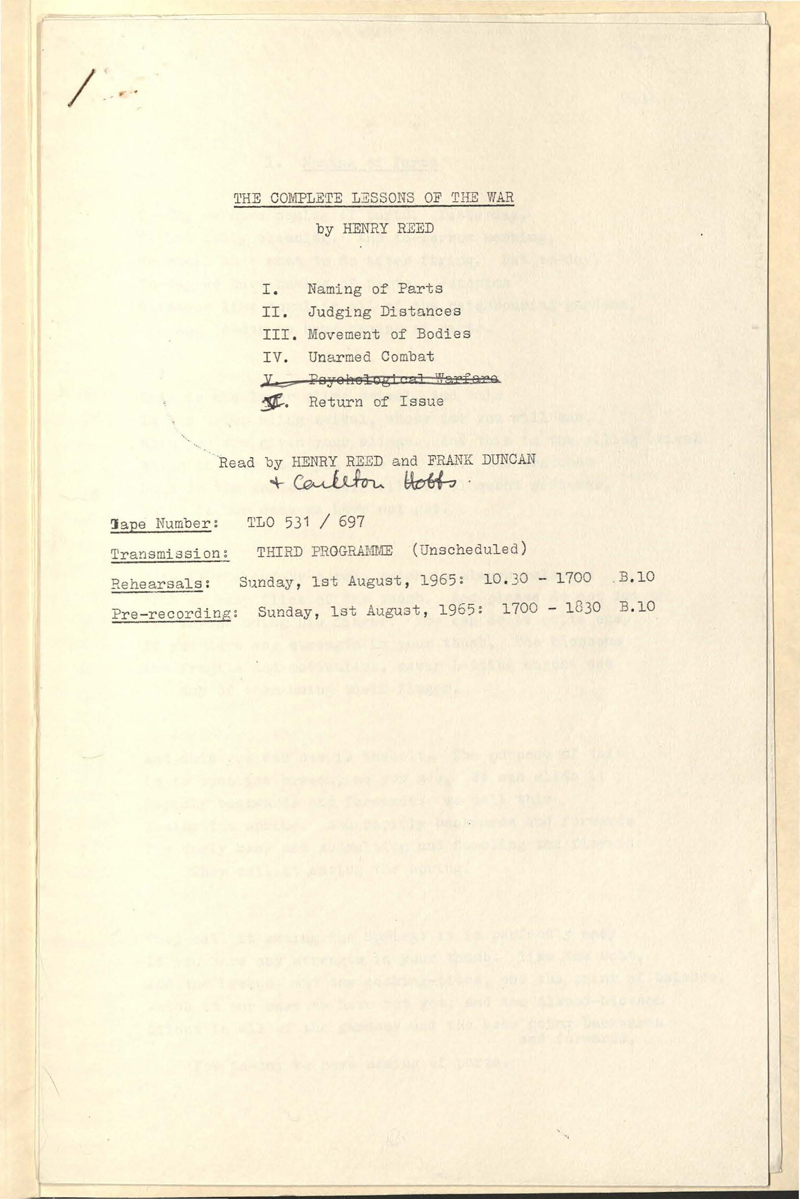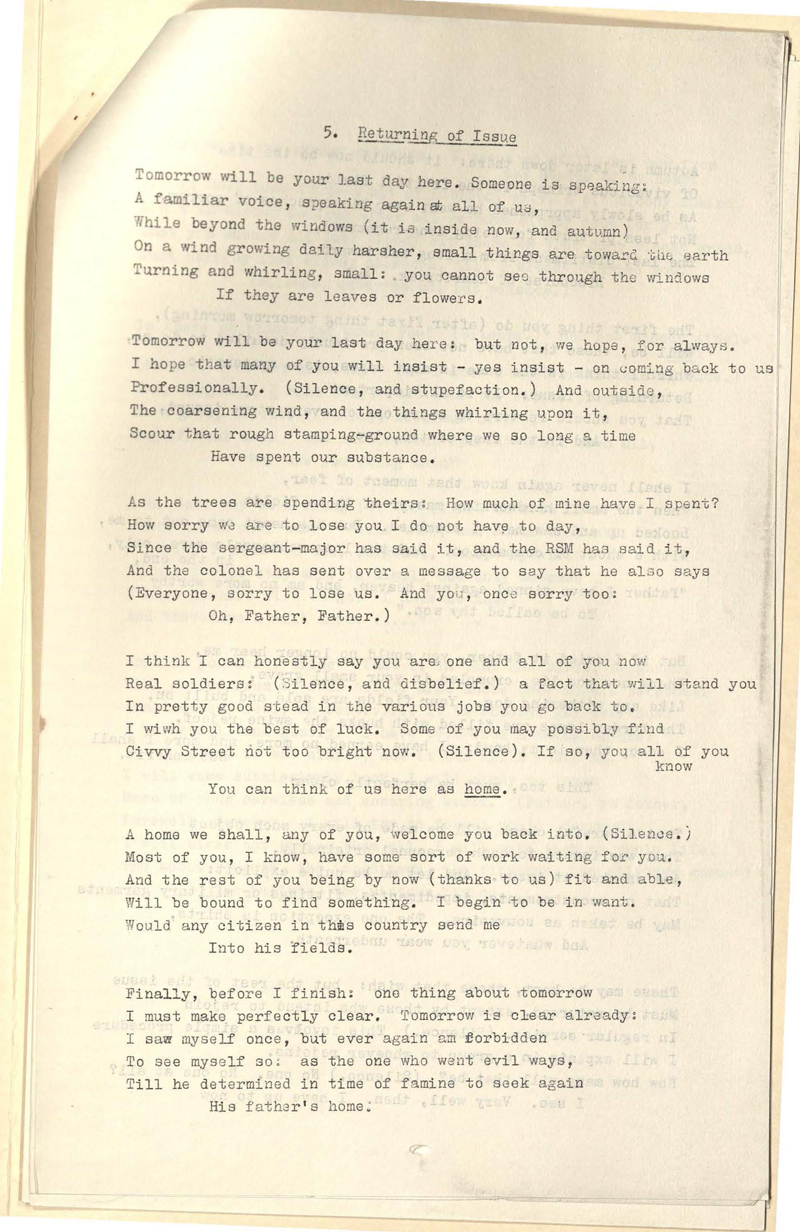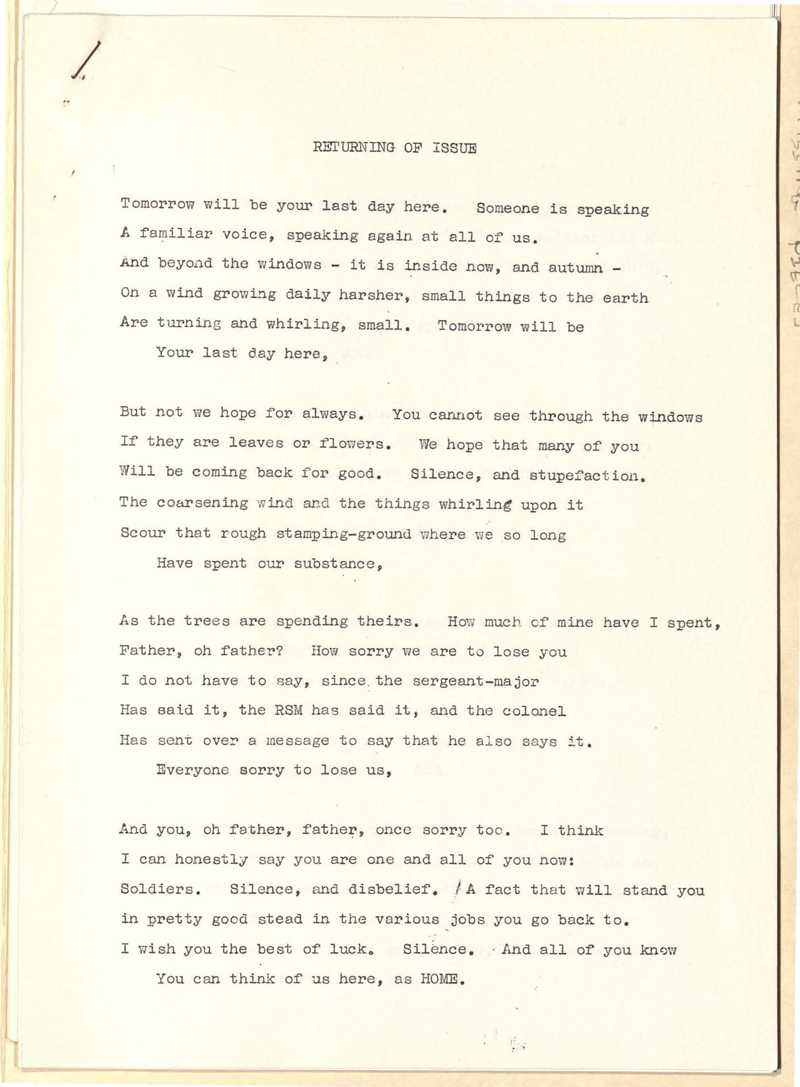On the front page of the script from 1965, you can see that — in addition to the five Lessons of the War poems read on the air on Radio 3 — the poem "Psychological Warfare" was also scheduled, but ultimately crossed out. Reed was obviously unhappy with it, and it was still unfinished before 1970. "Psychological Warfare" was not published until Reed's Collected Poems appeared in 1991 (edited by Jon Stallworthy), and actually made its debut in March of that year, in the London Review of Books.
The scripts for the other Lessons of the War poems, "Naming of Parts," "Judging Distances," "Unarmed Combat," and "Movement of Bodies," are all the same. But Reed continued to revise "Returning of Issue" — which he always kept last as the coda to the Lessons of the War sequence — until the poems were published in collection. The billing for 1970's Complete Lessons of the War states that "The fifth poem, Returning of Issue, has been largely rewritten since the programme was first broadcast in 1966. This new version has been re-recorded."
Notice the text cut between the two, the dispensable adjectives lost, and the line breaks shifted:
In the 1965 script for broadcast, the first two stanzas are (and in direct contrast to the season of spring from "Naming of Parts" in 1946):
Tomorrow will be your last day here. Someone is speaking:While in the 1970 script, rewritten and re-recorded for the new broadcast, we find the whole poem much improved, and restructured to conform more with the other early Lessons poems. The revised stanzas are as follows:
A familiar voice, speaking again at all of us,
While beyond the windows (it is inside now, and autumn)
On a wind growing daily harsher, small things are toward the earth
Turning and whirling, small: you cannot see through the windows
If they are leaves or flowers
Tomorrow will be your last day here: but not, we hope, for always.
I hope that many of you will insist — yes insist — on coming back to us
Professionally. (Silence, and stupefaction.) And outside,
The coarsening wind, and the things whirling upon it,
Scour that rough stamping-ground where we so long a time
Have spent our substance.
Tomorrow will be your last day here. Someone is speakingYou can view scans of the full scripts, here: both from 1965, but one without a revised "Returning of Issue," and the other with several revised copies of the poem, circa 1970.
A familiar voice, speaking again at all or us.
And beyond the windows — it is inside now, and autumn —
On a wind growing daily harsher, small things to the earth
Are turning and whirling, small. Tomorrow will be
Your last day here,
But not we hope for always. You cannot see through the windows
If they are leaves or flowers. We hope that many or you
Will be coming back for good. Silence, and stupefaction.
The coarsening wind and the things whirling upon it
Scour that rough stamping-ground where we so long
Have spent our substance,










